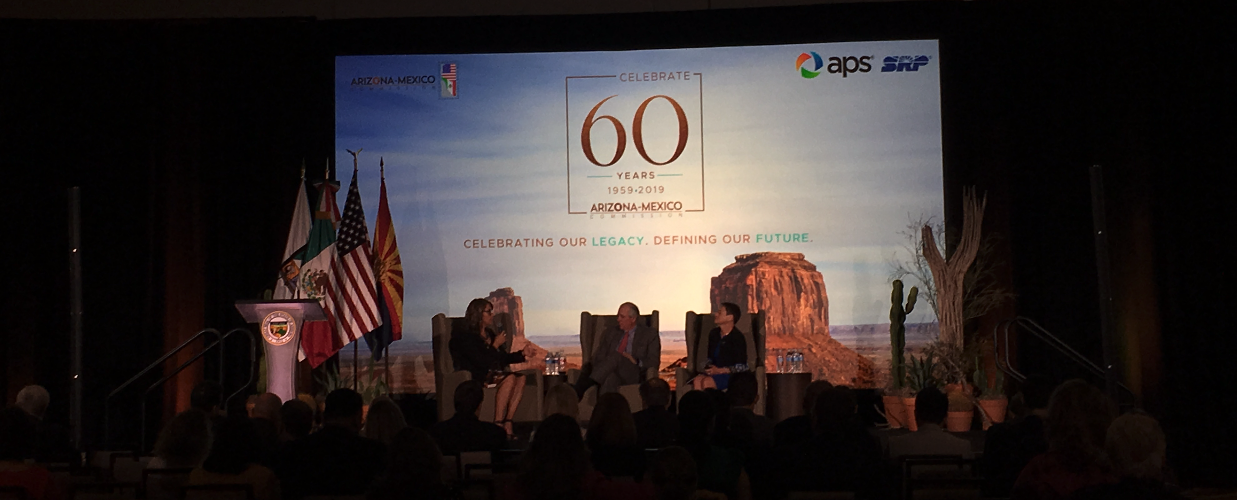University leaders joined the Arizona-Mexico Commission 60th Anniversary Summit last month to discuss international partnerships between institutions of higher education and their global impact.
Northern Arizona University (NAU) president Dr. Rita Cheng and University of Arizona (UA) President Dr. Robert Robbins participated in a panel discussion entitled: Local Universities, Global Impact.
UA’s location in Tucson puts it in close proximity to Nogales, Sonora where Dr. Robbins said UA is involved in a number of border health programs.
“Our college of social and behavioral science has Raul Castro’s home,” Robbins said. “We acquired that, and we think that’s going to be a great opportunity for an educational research lab to understand border issues and be an exemplar for other regions in the world that are dealing with border issues, but particularly around border health.”
Raul Castro was the first Latino governor of Arizona. His former home is now UA’s the Raúl H. and Patricia M. Castro Border Studies and Outreach Center.
NAU has initiatives and programs in place geared to address cross-border needs.
“Our partnerships in Mexico have responded to the cross-border needs in terms of our partnership with CETYS [Center for Technical and Higher Education] University in Mexicali,” Dr. Cheng explained.
CETYS focuses on engineering, business and social sciences.
Through the partnership, NAU students travel to CETYS and vice versa for about one week. During the visit, the students visit local businesses, attend lectures and gain educational and cultural experience at the partner school.
UA works to communicate with those in the border region to determine their needs and address them at the university.
“They’re continuously telling us we need to produce more engineers, more computer scientists, more business majors,” Dr. Robbins said.
He explained that there is a demand for graduates “who are complete individuals” and have soft skills such as leadership, communication, collaboration and creativity.
NAU partners with Universidad Tecnológico de Hermosillo to help students engage with gastronomy, hospitality and tourism.
“So, these are efforts to expand the horizon of our undergraduate students and students in Sonora so that they understand that tourism is a very global industry and they have opportunities to work in hotels and supply and other areas of the food chain in the industry,” Cheng said.
She added, “And, the more experience they get internationally the more competitive they will be in this incredible industry.”
















Add comment